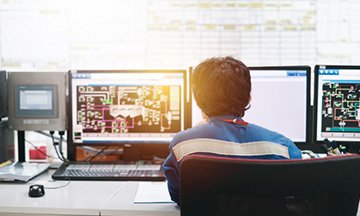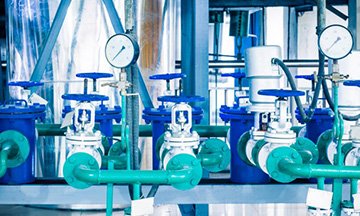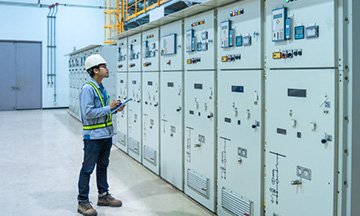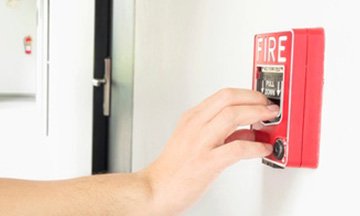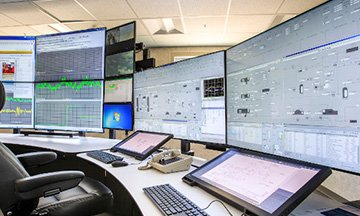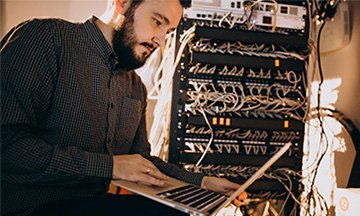Instrumentation Course for Oil and Gas Industry
| Date | Format | Duration | Fees | |
|---|---|---|---|---|
| 20 May - 31 May, 2024 | Live Online | 10 Days | $4495 | Register |
| 03 Jun - 14 Jun, 2024 | Live Online | 10 Days | $4495 | Register |
| 22 Jul - 26 Jul, 2024 | Live Online | 5 Days | $2250 | Register |
| 16 Sep - 20 Sep, 2024 | Live Online | 5 Days | $2250 | Register |
| 18 Nov - 22 Nov, 2024 | Live Online | 5 Days | $2250 | Register |
| 09 Dec - 13 Dec, 2024 | Live Online | 5 Days | $2250 | Register |
| Date | Venue | Duration | Fees | |
|---|---|---|---|---|
| 06 May - 17 May, 2024 | Houston | 10 Days | $9850 | Register |
| 27 May - 31 May, 2024 | Dubai | 5 Days | $4750 | Register |
| 03 Jun - 07 Jun, 2024 | Dubai | 5 Days | $4750 | Register |
| 17 Jun - 28 Jun, 2024 | Houston | 10 Days | $9850 | Register |
| 08 Jul - 12 Jul, 2024 | Dubai | 5 Days | $4750 | Register |
| 19 Aug - 23 Aug, 2024 | Dubai | 5 Days | $4750 | Register |
| 02 Sep - 06 Sep, 2024 | Amsterdam | 5 Days | $5695 | Register |
| 23 Sep - 27 Sep, 2024 | Dubai | 5 Days | $4750 | Register |
| 28 Oct - 01 Nov, 2024 | Dubai | 5 Days | $4750 | Register |
| 04 Nov - 08 Nov, 2024 | London | 5 Days | $5695 | Register |
| 11 Nov - 15 Nov, 2024 | Dubai | 5 Days | $4750 | Register |
| 09 Dec - 13 Dec, 2024 | Dubai | 5 Days | $4750 | Register |
| 23 Dec - 27 Dec, 2024 | Barcelona | 5 Days | $5695 | Register |
Course Overview
What is the role of an instrumentation engineer in the oil and gas industry? Industrial instrumentation is used and practised to measure, control and inspect conditions including temperature, pressure and fluid levels in processing facilities, petrochemical plants, oil refineries, oil and gas pipelines, and distribution operations.
Usual and common applications of oil & gas instrumentation comprise monitoring the incidence and presence of flammable and combustible gases in storage and production areas and supervising emissions for pollution control. Instrumentation is also used for monitoring and regulating flow in delivery systems.
The oil and gas industries process a variety of risky and hazardous substances that can cause explosions or catastrophic events and endanger the safety of humans and the environment. Field instrumentation offers monitoring and control that is essential for ensuring compliance with safety and environmental regulations.
When integrated into automation systems, petrochemical processing equipment also assists manufacturers to increase their productivity and product consistency by delivering data regarding process efficiency and product quality.
Production procedures in the oil & gas industry are linked with process variables like pressure, temperature, level and flow. Process instrumentation permits plants to measure and control these variables in real-time, making their processes run effectively and allowing them to meet safety, environmental and quality objectives.
Through the accessibility of a huge number of sophisticated instruments has led to improved product quality, many issues still arise. Every device has its scope and range of measurement accuracy, precision, sensitivity and cost; hence, instrument engineers are frequently overwhelmed when choosing a particular technology for a specific application. An incorrect choice could lead to recurring malfunctions and failures of the instruments.
This course by Zoe Talent Solutions is designed to benefit the participants with practical up-to-date information on the three primary components of industrial instrumentation that are sensors, transducers and transmitters.
- Sensors: measure the physical properties of a solid, fluid or gas. In the oil and gas industry, sensors give the continuous measurement to detect and monitor gas and gas emissions
- Transducers: change and convert variations in temperature, pressure, flow or level into an electric signal that is then picked up by a transmitter
- Transmitters: function as an interface among sensors and measurement instrumentation such as level sensors, flow meters, and pressure sensors
This Zoe training course aims to explain the main characteristics, components and functions of the major instrument types used in the oil and gas industry.
Course Objectives
Upon completing this Instrumentation Course for Oil and Gas Industry successfully, participants will have an understanding of:
- Field instrumentation
- The function field instrumentations and understand their importance
- Instruments for pressure measurement
- Temperature measurement
- Flow measurement
- Level measurement
Training Methodology
This collaborative Instrumentation Course for Oil and Gas Industry will comprise the following training methods:
- Lectures
- Seminars and Presentations
- Group Discussions
- Assignments
- Case Studies and Functional Exercises
Zoe Talent Solutions follows the ‘Do-Review-Learn-Apply’ model.
Organisational Benefits
Companies who nominate their employees to participate in this Instrumentation Course for Oil and Gas Industry can benefit in the following ways:
- Keep your company one step ahead with this all-inclusive Instrumentation Course for Oil and Gas Industry
- Assist technical committees to create, publish and revise working standards relating to Instrumentation in Oil and Gas Industry
- Carefully analyse examples and case studies to illustrate the material being discussed and ensure that the course material is appropriate to the organisation represented
- Leave with an awareness and understanding of their roles and responsibilities in the workplace in relation to Instrumentation in the Oil and Gas Industry
Personal Benefits
Individuals who participate in this Instrumentation Course for Oil and Gas Industry can gain from it in the following ways:
- Understand the principle of operation of a range of sensors and transducers used in Instrumentation for the Oil and Gas Industry
- Review the construction and operation of Instrumentation in the Oil and Gas Industry
- Evaluate and select the most appropriate sensor technology for Instrumentation in Oil and Gas Industry
- Design, build and test using a given specification of Instrumentation for Oil and Gas Industry
- Identify components and features of Instrumentation in the Oil and Gas Industry
- Optimise control by using relevant software of Instrumentation
Who Should Attend?
Instrumentation Course for Oil and Gas Industry would be suitable for:
- Instrumentation and Control Engineers
- Process Control Engineers
- Electrical Engineers
- Consulting Engineers
- Design Engineers
- Control System Sales Engineers
- Maintenance Supervisor
- Control System Application Engineers
- Project Engineers
- Technicians
- Plant Engineers
- IT Personnel
Course Outline
MODULE 1: PRINCIPLES OF MEASUREMENTS
- Introduction
- Measurement and Control Loop
- Measuring Signals
- Transmitter Components
- Transmitter Calibration
- Modern Features of SMART Transmitters
- Symbols for Signal Transmission Lines
MODULE 2: PRESSURE MEASUREMENT
- Introduction
- Methods of Pressure Measurement
- Pneumatic Pressure Transmitter
- Sensor Characteristics
- Piezoelectric-type Sensor
- Capacitance-type Sensor
- Typical Application of Smart Pressure Transmitter
- Functional Block Diagram
- Pressure Transmitter Applications
- Pressure Switches
MODULE 3: LEVEL MEASUREMENT
- Introduction to Level Measurement
- Selection of Level Method
- Methods of Level Measurement
- Direct Methods of Level Measurement
- Manual Gauging Tapes
- Sight Glasses
- Float Gauges
- Servo-powered Tank Level Gauge
- Float Switches
- Indirect Methods of Level Measurement
- Displacer
- Level Measurement by Differential Pressure
- Capacitance Probes
- Resistance Tapes
MODULE 4: TEMPERATURE MEASUREMENT
- Introduction to Temperature Measurement
- Temperature- Definition of Temperature
- Methods of Temperature Measurement
- Expansion Methods of Temperature Measurement
- Electrical Methods of Temperature Measurement
- Thermistors, Thermocouples, Resistance Temperature Detectors, Four-Wire Resistance Measurement, Thermal Wells
MODULE 5: FLOW MEASUREMENT
- Introduction to Flow Measurement
- Methods of Flow Measurement
- Inferential Flow Meters
- Orifice Meters
- Venturi Meters
- Pitot Tubes
- Variable-Area Flowmeters
- Magnetic Flowmeters
- Turbine Meter
- Coriolis Mass Flowmeters
- The Vortex Flowmeter
- Ultrasonic Flowmeters
